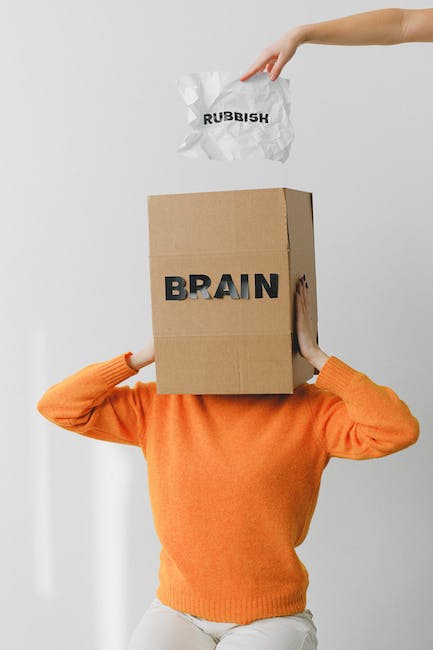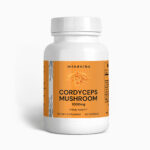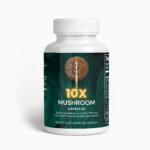
“Thyroid Health: Can Supplements Support Thyroid Function?”
Are you feeling fatigued, gaining weight despite your efforts, or experiencing hair loss? These are some of the common symptoms of an underactive thyroid, a condition known as hypothyroidism. Given that the thyroid gland plays a vital role in regulating metabolism and overall health, it’s understandable to seek ways to support its function. While medication is often the conventional approach to managing thyroid disorders, there is growing interest in the potential of dietary supplements to complement conventional treatments or even act as stand-alone interventions. In this article, we’ll explore the evidence behind some of the most popular supplements for thyroid health and whether they deliver on their promises.
1. Understanding Thyroid Health: An Introduction
The thyroid is a butterfly-shaped gland located in the base of the neck. It produces hormones that regulate metabolism and energy in the body. However, when the thyroid gland produces too much or too little hormone, it can lead to thyroid disorders. Over 20 million Americans are affected by some type of thyroid disorder, and many of these cases are undiagnosed. Therefore, it is important to understand thyroid health and how to maintain its proper function.
The two most common thyroid disorders are hyperthyroidism and hypothyroidism. Hyperthyroidism occurs when the thyroid gland produces too much hormone, causing a person’s metabolism to speed up. Symptoms of hyperthyroidism include weight loss, rapid heartbeat, anxiety, and sweating. Hypothyroidism, on the other hand, occurs when the thyroid gland does not produce enough hormone, causing a person’s metabolism to slow down. Symptoms of hypothyroidism include weight gain, fatigue, depression, and joint pain.
There are many factors that affect thyroid health, including diet, genetics, and environmental toxins. Maintaining a healthy diet with proper nutrition and avoiding toxins such as cigarette smoke and alcohol can help prevent thyroid disorders. Additionally, regular exercise and stress reduction techniques can help balance hormone levels and promote overall health. By taking care of your thyroid, you will be able to live a healthy and vibrant life.
2. The Role of Supplements in Thyroid Function
Supplements play a crucial role in maintaining optimal thyroid function. The thyroid gland is responsible for producing hormones that regulate metabolism, growth, and development. When the thyroid is not functioning correctly, it can lead to a multitude of problems such as weight gain, fatigue, and depression.
One supplement that has gained popularity in recent years is iodine. Iodine is essential for thyroid function as it is a key component of thyroid hormones. However, it is important to note that too much iodine can also be harmful and lead to hypothyroidism. It is recommended to consult with a healthcare provider before supplementing with iodine.
Another supplement that has shown promise in supporting thyroid function is selenium. Selenium acts as an antioxidant and is involved in the conversion of thyroid hormones from their inactive to active form. It also plays a role in regulating the immune system, which can be particularly helpful for those with autoimmune thyroid conditions such as Hashimoto’s thyroiditis.
- Summary: Supplements can be beneficial in supporting thyroid function. It is important to be cautious when supplementing with iodine and to consult with a healthcare provider. Selenium has shown promise in supporting thyroid health.

3. The Benefits of Supplementing with Iodine for Thyroid Health
The thyroid gland is a small butterfly-shaped organ in the neck that produces important hormones that regulate metabolism, growth, and development in the body. A deficiency in iodine, a mineral that the body can’t produce, can cause the thyroid gland to become enlarged, leading to a condition called goiter. Supplementing with iodine can help maintain sufficient levels of the mineral in the body and improve thyroid function.
Here are some of :
- Regulates mood and energy levels: The hormones produced by the thyroid gland play an important role in regulating mood and energy levels in the body. Supplementing with iodine can help promote a stable mood and prevent fatigue and sluggishness.
- Promotes healthy fetal development: Pregnant women who don’t get enough iodine are at risk of iodine deficiency disorders that can cause intellectual disability, stunted growth, and other developmental problems. Supplementing with iodine during pregnancy can improve fetal brain development and reduce the risk of these disorders.
- Supports healthy metabolism: Adequate levels of iodine are necessary for the production of the thyroid hormones that regulate metabolism. Supplementing with iodine can help maintain healthy metabolic function and prevent weight gain and other metabolic disorders.
Overall, supplementing with iodine can be an effective and easy way to support optimal thyroid function and promote overall health. If you are experiencing symptoms of thyroid dysfunction or are pregnant or trying to conceive, it’s important to consult with a healthcare provider and get tested for iodine deficiency to determine if iodine supplementation is appropriate for you.

4. Zinc and Selenium: Key Nutrients for Thyroid Hormone Production
One of the most important factors in maintaining a healthy thyroid gland is ensuring that your body has adequate levels of zinc and selenium. These two essential minerals play a critical role in the production of thyroid hormones, which are responsible for regulating your metabolism and energy levels.
Zinc is necessary for the conversion of T4 (thyroxine) into T3 (triiodothyronine), which is the active form of thyroid hormone that your body uses. Without sufficient levels of zinc, your body may struggle to make this conversion, leading to symptoms of hypothyroidism such as fatigue, cold intolerance, and weight gain.
Similarly, selenium is crucial for the proper functioning of your thyroid gland. It helps to convert T4 into T3, and is involved in the production of antioxidant enzymes that protect the thyroid from damage. Studies have also suggested that selenium may play a role in reducing inflammation in the body, which can contribute to thyroid dysfunction.
To ensure that you are getting enough zinc and selenium in your diet, it is important to eat a balanced and varied diet that includes plenty of whole foods. Some good dietary sources of zinc include oysters, beef, pumpkin seeds, and spinach. Selenium can be found in brazil nuts, tuna, chicken, and eggs. Alternatively, you may consider taking a high-quality multivitamin or mineral supplement that contains these nutrients in the appropriate doses. By prioritizing your intake of these key nutrients, you can support your thyroid health and prevent the development of thyroid dysfunction in the future.
5. The Importance of Vitamin D for Thyroid Health
Vitamin D is an essential nutrient that plays a crucial role in maintaining thyroid health. This vital nutrient is responsible for regulating the functioning of the thyroid gland, which plays a major role in the metabolism and overall health of our body. Studies have suggested that low levels of vitamin D can lead to thyroid disorders, such as hypothyroidism and Hashimoto’s thyroiditis.
In addition, vitamin D is also known to regulate the immune system, which can help prevent autoimmune diseases that affect the thyroid gland. Research has shown that individuals with autoimmune thyroiditis have lower levels of vitamin D, which can lead to further complications. Therefore, it is important to ensure that your vitamin D levels are within the recommended range to maintain thyroid health.
Fortunately, obtaining vitamin D is quite easy, as there are several natural sources through which you can increase your intake of this vital nutrient. Sunlight is a great source of vitamin D, and spending just a few minutes a day outside can help ensure that your body is getting enough of this vital nutrient. You can also get vitamin D by consuming foods such as fatty fish, egg yolks, and fortified cereals.
- To summarize, Vitamin D is necessary for healthy thyroid functioning and can prevent autoimmune thyroid disease.
- Low levels of Vitamin D lead to thyroid disorders, especially autoimmune ones, such as Hashimoto’s thyroiditis.
- Natural sources of Vitamin D include sunlight exposure and food sources like fish, egg yolk and fortified cereals.
Therefore, if you are someone who is either suffering from thyroid disorders or is concerned about your thyroid health, it is crucial to ensure that you are getting enough vitamin D. By incorporating vitamin D-rich foods into your diet and spending a short amount of time in the sun, you can take important steps towards optimizing your thyroid health.
6. Omega-3 Fatty Acids and Their Impact on Thyroid Function
Omega-3 fatty acids have long been known to provide various health benefits, including cardiovascular health, cognitive function, and inflammation reduction. However, recent studies have shown that omega-3 fatty acids play a crucial role in maintaining proper thyroid function.
The thyroid gland is responsible for producing hormones that regulate metabolism, leading to appropriate growth and development. Research has shown that omega-3 fatty acids help regulate the thyroid gland’s hormone production, boosting thyroid function in individuals with hypothyroidism.
Moreover, omega-3 fatty acids reduce inflammation, which helps reduce autoimmune responses that may cause inflammation in the thyroid gland. By reducing inflammation, omega-3 fatty acids may prevent or manage autoimmune thyroid disorders such as Hashimoto’s thyroiditis.
To ensure proper thyroid function, it’s crucial to include omega-3 fatty acids in your diet. Foods rich in omega-3s include fatty fish such as salmon, sardines, and tuna, as well as walnuts, chia seeds, and flaxseeds. If you’re not a fan of these foods, consider taking an omega-3 supplement to support your thyroid health. Remember, a healthy thyroid is essential for a healthy body!
7. The Bottom Line: How Supplements Can Support Thyroid Health
Supplements can be highly beneficial in supporting thyroid health. By adding some key nutrients and minerals to your daily intake, you can ensure that your thyroid gland is functioning optimally and helping you to maintain a healthy weight, keep your energy levels high, and support your immune system.
Iodine: This mineral is essential for thyroid function, as it’s used to make thyroid hormones. Without enough iodine, your thyroid gland can’t produce enough of the hormones that regulate your metabolism. You can find iodine in seaweed, fish, dairy, and iodized salt. However, if you’re vegan or have a specific dietary requirement, you might need to consider an iodine supplement.
Selenium: This trace mineral has been shown to support thyroid function and reduce the risk of thyroid disease. It helps to protect the thyroid gland from damage caused by oxidative stress and inflammation. You can get selenium from foods like Brazil nuts, organ meats, fish, whole grains, and eggs. If you’re unable to consume enough selenium through your diet, a supplement might be necessary.
Vitamin D: Low levels of vitamin D have been linked to an increased risk of autoimmune thyroid disease. It’s thought to modulate the immune system and help to regulate thyroid function. You can get vitamin D from sunlight, but supplements can be especially useful in the winter months when sunlight is limited. Ask your healthcare provider to check your vitamin D levels and recommend a supplement dosage if needed.
The bottom line: While supplements can’t replace a healthy, balanced diet, they can be a useful tool in supporting thyroid health. If you’re experiencing symptoms of thyroid dysfunction, talk to your healthcare provider about whether supplements might be a helpful addition to your treatment plan.
If you are looking for a safe and natural way to support thyroid health, consider adding thyroid supplements to your diet. Supplements are a powerful additional support tool and they may even help improve your symptoms and boost overall thyroid health. Take the first step now in supporting your thyroid health and consult with your healthcare provider before taking any supplement.

























